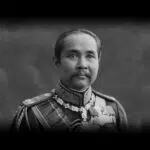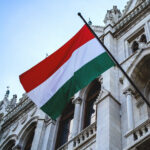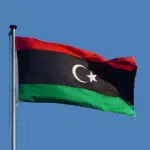Libya’s autocratic leader, Muammar Gaddafi, was deposed in a long-running civil war, which is commemorated each year on Libya Liberation Day, which takes place on October 23. Libya Liberation Day marks the end of oppression and the beginning of optimism for Libyans. The day honors and praises the bravery of people who stood up against the Gaddafi regime. All the banks, schools, and government offices are closed on this day as it is a national holiday.
History of Libya Liberation Day
King Idris I, a religious and political leader, had ruled Libya since 1951. However, his regime became increasingly unpopular among the Libyan populace, primarily due to deep corruption and exploitation of the country’s oil reserves. One ambitious political leader, Muammar Gaddafi, and his political party — the Central Committee of the Free Officers Movement — took advantage of this unrest to overthrow the king as he was traveling abroad. They took control of the government, exiled Idris, abolished the monarchy and old constitution, and established a new socialist form of government. The coup’s bloodless nature earned it the moniker of the ‘White Revolution.’
Gaddafi’s regime had two sides. While, on the one hand, Libya benefited immensely from the initiatives and policies implemented by Gaddafi’s dictatorship, on the other hand, Gaddafi and his followers plundered most of the riches. His rule has been dubbed autocratic and even tyrannical by many. In support of rebel movements, he launched attacks in several countries and invaded many neighboring states, including Chad in Africa. Libya’s external relations, particularly with Western countries, have, as a result, completely broken down.
The Arab Spring movement, which included a slew of anti-government demonstrations in several Arab countries, inspired the unrest in Libya against the Gaddafi government. In 2011, an uprising swept Libya, prompting a harsh response from the Gaddafi administration. Major Western powers took military action in response to the ongoing conflict, and the United States and NATO aided Libyan revolutionary fighters.
Gaddafi managed to evade rebel forces for a long time, until October 20, 2011, when he was finally captured and executed in Sirte, Libya, by the rebels. The country officially declared its liberation from Gaddafi’s rule in October 2011, a move that brought about the end of Libya’s first civil war. The Libya Liberation Day commemorates this victory, with special celebrations across the country even today.
Libya Liberation Day timeline
Although official confirmation only comes in January 1970, Muammar Gaddafi commences ruling Libya this year.
The Libyan Civil War causes many casualties in the country, which brings about an intervention by NATO forces and a coalition of other major countries, including the U.S.
The International Criminal Court issues an arrest warrant for Gaddafi, his son, and his central spy chief for their crimes against humanity and the Libyan rebels.
Libya announces it has been liberated from Gaddafi's rule — the day is commemorated as Libya Liberation Day ever since.
Libya Liberation Day FAQs
Does Libya have an Independence Day?
Libyans celebrate Libya Independence Day on December 24 to celebrate the regaining control of their homeland from France and the United Kingdom in 1951.
Who colonized Libya first?
History indicates that the Greeks were the first colonizers of the land now known as Libya. The country passed hands from one colonizer to another before finally gaining independence in 1951.
Do they celebrate Christmas in Libya?
Stemming from when the Romans held Libya, Christianity and Christian settlers have always lived on this land, albeit in the minority. So yes, Christmas is celebrated by around 0.5% of the 6.7 million population.
How to Observe Libya Liberation Day
Read accounts of the liberation
A quick online search can generate plenty of material and articles about the events leading up to Libya's liberation. Pick ones you'd want to read.
Learn more about the Arab Spring
Libya was not the only country affected by the Arab Spring. Learn everything about this series of protests, including how they began, which countries were involved, and their total impact.
Explore Libya
If you have a Libyan friend, now is a fantastic moment to quiz them on what makes their country unique. Online resources, videos and books, and other materials can help you learn about the area, the culture, the traditions, and the people.
5 Interesting Facts About Libya
Libya has had only one king
King Idris I, ousted during Libya's fight for independence in the 1950s, was Libya's only reigning monarch.
Libya constitutes parts of the Sahara Desert
The harshest and driest parts of Libya are the eastern and northern regions, which can go for decades without seeing a drop of rain.
Gaddafi was the longest-serving leader
Gadaffi ruled Libya for 42 years, making him Africa's longest-serving leader.
Gadaffi changed Libya's name multiple times
Gaddafi renamed Libya the Libyan Arab Republic, then the Socialist People's Libyan Arab Jamahiriya, then the Great Socialist People's Libyan Arab Jamahiriya, and finally the State of Libya, in 2017.
The Italian-Libyan friendship
Despite the continuous unrest in Libya, the Italian embassy in Tripoli has stayed open, making it one of the few Western embassies to do so, underscoring the importance of the Italian-Libyan connection.
Why Libya Liberation Day is Important
It celebrates the strength of revolution
As proven by the number of countries affected by the Arab Spring, a single spark can impact and influence individuals worldwide. While the outcomes of these protests differed significantly between countries, they sparked political movements against repressive norms and exploitation that continue to this day.
We're revisiting important history
The rise and fall of Muammar Gaddafi and the Libyan people's struggle against his tyranny provide essential insights into Libyan politics. We can see how historical events affected the country's contemporary climate, politics, and economy.
It gets us thinking
When we talk about a country's liberation day, we all think about what this phrase means. We are encouraged to think about what it means to us, to appreciate the value of our current freedom, and learn to cherish it even more.
Libya Liberation Day dates
| Year | Date | Day |
|---|---|---|
| 2025 | October 23 | Thursday |
| 2026 | October 23 | Friday |
| 2027 | October 23 | Saturday |
| 2028 | October 23 | Monday |
| 2029 | October 23 | Tuesday |











